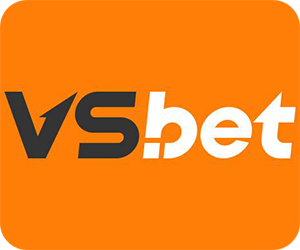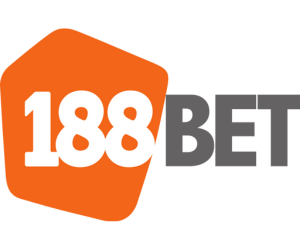Tài Xỉu Online Uy Tín tại Việt Nam - Tải App Nhận Ngay Thưởng 100k
Chơi Tài Xỉu Online tại các cổng game chất lượng như VSbet, 6686, 188Bet, M88, FB88, Fun88, 12Bet, W88, BK8, 1XBET, MU88, AE88 và nhận phần thưởng cực cao.
Chơi Tài Xỉu Online tại các cổng game chất lượng như VSbet, 6686, 188Bet, M88, FB88, Fun88, 12Bet, W88, BK8, 1XBET, MU88, AE88 và nhận phần thưởng cực cao.

Nhà cái uy tín - tài xỉu bóng đá
6686 is one of the most trusted and popular Tài Xỉu platforms in Vietnam.

Nhà cái số 1 - tài xỉu sunwin
VSbet provides great odds and promotions for Tài Xỉu players.

Nhà cái uy tín xịn sò - tài xỉu online
188Bet là một trong những thương hiệu cá cược Tài Xỉu uy tín nhất tại Việt Nam, với tỷ lệ thắng cao và ưu đãi hấp dẫn.

Top 10 cổng game uy tín - tài xỉu online uy tín
M88 provides top-notch Tài Xỉu gameplay with large bonuses and a safe betting environment.

Top nhà cái uy tin nhất - game tài xỉu
FB88 là nền tảng cá cược Tài Xỉu hàng đầu tại Việt Nam với tỷ lệ cược cạnh tranh và hỗ trợ khách hàng 24/7.

Nhà cái uy tín thế giới - game tài xỉu online
Fun88 is a popular Tài Xỉu platform in Vietnam with a wide range of betting options and great promotions.

Trang cá độ uy tín - tài xỉu uy tín
12Bet is a reliable platform offering excellent Tài Xỉu betting options and attractive bonuses.

Nhà cái mới nhất, đẳng cấp - game tài xỉu uy tín
W88 offers a range of top-tier Tài Xỉu games and bonuses tailored for Vietnamese players.

Top 10 game bài uy tín - tải tài xỉu
BK8 là nhà cái hàng đầu châu Á, cung cấp trò chơi Tài Xỉu hấp dẫn với giao diện thân thiện và tốc độ rút tiền nhanh.

Top nhà cái tặng tiền trải nghiệm - kèo tài xỉu
1XBET là nhà cái quốc tế hàng đầu, cung cấp Tài Xỉu với tỷ lệ cược cao, giao diện hiện đại và nhiều chương trình khuyến mãi hấp dẫn.

tài xỉu online uy tín
MU88 là nhà cái cá cược trực tuyến hàng đầu Việt Nam, nổi bật với tỷ lệ thắng cao và chương trình khuyến mãi hấp dẫn cho người chơi Tài Xỉu.

game tài xỉu uy tín
AE88 là nhà cái uy tín hàng đầu, nổi bật với Tài Xỉu siêu hấp dẫn, tỷ lệ thưởng cao và chương trình khuyến mãi độc quyền.
Sản phẩm:Các trò chơi cá cược thể thao và casino trực tuyến.
Khuyến mãi:Chào mừng người chơi mới với phần thưởng đăng ký hấp dẫn.
Trải nghiệm người dùng:Giao diện thân thiện và dễ sử dụng.
Phương thức thanh toán:Đa dạng các phương thức như chuyển khoản ngân hàng và ví điện tử.
Biện pháp an toàn:Mã hóa SSL để bảo vệ thông tin người dùng.
Chức năng độc đáo:Tính năng cá cược thể thao trực tiếp với tỷ lệ cược hấp dẫn.
Sản phẩm:Cá cược thể thao và các trò chơi casino trực tuyến.
Khuyến mãi:Các chương trình khuyến mãi đặc biệt cho người chơi mới và hiện tại.
Trải nghiệm người dùng:Giao diện dễ sử dụng, hỗ trợ nhiều ngôn ngữ.
Phương thức thanh toán:Tích hợp nhiều lựa chọn thanh toán quốc tế.
Biện pháp an toàn:Hệ thống bảo mật tiên tiến, đảm bảo an toàn cho người chơi.
Chức năng độc đáo:Cung cấp các kèo thể thao phong phú với nhiều lựa chọn cá cược.
Sản phẩm:Dịch vụ cá cược thể thao và các trò chơi casino trực tuyến.
Khuyến mãi:Thưởng chào mừng và các chương trình ưu đãi theo mùa.
Trải nghiệm người dùng:Giao diện người dùng dễ hiểu và dễ thao tác.
Phương thức thanh toán:Cung cấp các phương thức thanh toán nhanh chóng và an toàn.
Biện pháp an toàn:Sử dụng hệ thống bảo mật cao cấp và bảo vệ quyền lợi người chơi.
Chức năng độc đáo:Đặt cược trực tiếp trên các sự kiện thể thao lớn.
Sản phẩm:Các trò chơi casino trực tuyến và cá cược thể thao.
Khuyến mãi:Thưởng người chơi mới và các gói khuyến mãi đặc biệt cho các sự kiện thể thao.
Trải nghiệm người dùng:Giao diện trực quan, dễ dàng điều hướng.
Phương thức thanh toán:Hỗ trợ thanh toán qua nhiều cổng thanh toán quốc tế.
Biện pháp an toàn:Mã hóa bảo mật SSL và hệ thống phòng chống gian lận hiệu quả.
Chức năng độc đáo:Cá cược thể thao trực tiếp với tỷ lệ cược thay đổi liên tục.
Sản phẩm:Cá cược thể thao, trò chơi casino và xổ số.
Khuyến mãi:Chương trình thưởng đăng ký và ưu đãi hàng tuần.
Trải nghiệm người dùng:Giao diện thiết kế đẹp mắt, dễ sử dụng cho cả người mới và người chơi lâu năm.
Phương thức thanh toán:Chuyển khoản ngân hàng, thẻ tín dụng và ví điện tử.
Biện pháp an toàn:Hệ thống bảo mật tiên tiến và bảo vệ tài khoản người chơi.
Chức năng độc đáo:Các kèo cá cược thể thao trực tuyến và cơ hội thắng lớn.
Sản phẩm:Casino trực tuyến, cá cược thể thao, poker và xổ số.
Khuyến mãi:Ưu đãi hấp dẫn cho người chơi mới và các khuyến mãi đặc biệt theo sự kiện.
Trải nghiệm người dùng:Giao diện thân thiện với người dùng và dễ dàng sử dụng trên mọi thiết bị.
Phương thức thanh toán:Thanh toán nhanh chóng qua nhiều kênh, bao gồm chuyển khoản và ví điện tử.
Biện pháp an toàn:Cam kết bảo mật thông tin người chơi với công nghệ mã hóa cao cấp.
Chức năng độc đáo:Cung cấp các trò chơi cá cược thể thao phong phú với nhiều kèo cược.
Sản phẩm:Cá cược thể thao, poker và các trò chơi casino trực tuyến.
Khuyến mãi:Khuyến mãi chào mừng và thưởng hàng tuần cho người chơi.
Trải nghiệm người dùng:Giao diện dễ sử dụng, tối ưu cho di động.
Phương thức thanh toán:Hỗ trợ nhiều phương thức thanh toán nhanh chóng và an toàn.
Biện pháp an toàn:Sử dụng công nghệ bảo mật mạnh mẽ, đảm bảo sự an toàn cho người chơi.
Chức năng độc đáo:Cung cấp tỷ lệ cược hấp dẫn và nhiều sự kiện thể thao nổi bật.
Sản phẩm:Cá cược thể thao, casino, poker và nhiều trò chơi khác.
Khuyến mãi:Các chương trình ưu đãi lớn dành cho người chơi mới và lâu dài.
Trải nghiệm người dùng:Giao diện trực quan, dễ dàng sử dụng trên mọi nền tảng.
Phương thức thanh toán:Đa dạng các hình thức thanh toán nhanh chóng và tiện lợi.
Biện pháp an toàn:Bảo mật hệ thống và dữ liệu người dùng được mã hóa cao cấp.
Chức năng độc đáo:Cung cấp cá cược thể thao trực tuyến với tỷ lệ cược ưu đãi.
Sản phẩm:Cá cược thể thao, các trò chơi casino và poker trực tuyến.
Khuyến mãi:Chương trình khuyến mãi chào mừng và khuyến mãi đặc biệt cho người chơi thân thiết.
Trải nghiệm người dùng:Giao diện dễ sử dụng và tối ưu cho cả người chơi mới và chuyên nghiệp.
Phương thức thanh toán:Hỗ trợ thanh toán nhanh chóng và an toàn qua nhiều kênh.
Biện pháp an toàn:Mã hóa SSL và các hệ thống bảo mật giúp người chơi an tâm.
Chức năng độc đáo:Cung cấp nhiều lựa chọn cá cược và tỷ lệ cược hấp dẫn.
Sản phẩm:Các trò chơi thể thao, casino trực tuyến, và poker.
Khuyến mãi:Ưu đãi đặc biệt cho người chơi mới và khuyến mãi mỗi tuần.
Trải nghiệm người dùng:Giao diện thân thiện và dễ dàng sử dụng trên mọi thiết bị.
Phương thức thanh toán:Hỗ trợ các phương thức thanh toán nhanh chóng và an toàn.
Biện pháp an toàn:Sử dụng hệ thống bảo mật cao cấp và mã hóa dữ liệu người chơi.
Chức năng độc đáo:Cung cấp các sự kiện thể thao lớn với nhiều kèo cá cược hấp dẫn.
Sản phẩm:Cá cược thể thao, trò chơi casino và poker trực tuyến.
Khuyến mãi:Thưởng đăng ký hấp dẫn và các ưu đãi cho người chơi lâu dài.
Trải nghiệm người dùng:Giao diện dễ sử dụng, tối ưu hóa cho di động.
Phương thức thanh toán:Thanh toán qua các kênh an toàn và nhanh chóng.
Biện pháp an toàn:Hệ thống bảo mật tiên tiến để bảo vệ thông tin người dùng.
Chức năng độc đáo:Các tính năng cá cược trực tiếp và các tỷ lệ cược ưu đãi.
Sản phẩm:Các trò chơi casino, cá cược thể thao và poker.
Khuyến mãi:Chào mừng người chơi mới với các phần thưởng hấp dẫn.
Trải nghiệm người dùng:Giao diện thân thiện, dễ dàng sử dụng cho cả người mới và người chơi lâu năm.
Phương thức thanh toán:Đa dạng các lựa chọn thanh toán nhanh chóng và tiện lợi.
Biện pháp an toàn:Hệ thống bảo mật SSL giúp bảo vệ dữ liệu người chơi.
Chức năng độc đáo:Tính năng cá cược thể thao trực tuyến với tỷ lệ cược hấp dẫn.
Tài Xỉu, hay còn gọi là Sicbo, là một trò chơi cá cược phổ biến tại Việt Nam. Người chơi dự đoán tổng điểm của ba viên xúc xắc trong mỗi vòng quay, Tài là tổng điểm lớn hơn 11, còn Xỉu là tổng điểm nhỏ hơn 11.
Chơi Tài Xỉu rất đơn giản. Bạn chỉ cần đặt cược vào một trong hai lựa chọn: Tài hoặc Xỉu. Sau khi bạn đặt cược, xúc xắc sẽ được lắc và kết quả sẽ quyết định bạn thắng hay thua.
Tài Xỉu Online là sự phát triển của trò chơi truyền thống, cho phép bạn tham gia chơi ngay trên điện thoại hoặc máy tính. Trò chơi không chỉ đơn giản mà còn mang đến cơ hội thắng lớn mỗi ngày.
Tài Xỉu là trò chơi hoàn toàn phụ thuộc vào may mắn, trong khi những trò chơi khác như Blackjack yêu cầu chiến thuật. Tuy nhiên, Tài Xỉu có tốc độ nhanh và dễ chơi hơn nhiều.
Tham gia Tài Xỉu Online tại các cổng game uy tín để nhận những chương trình khuyến mãi hấp dẫn. Bạn có thể nhận tiền thưởng khi đăng ký, nạp tiền, hoặc tham gia các sự kiện đặc biệt trong game.
Để bảo mật tài khoản Tài Xỉu của bạn, đầu tiên hãy sử dụng mật khẩu mạnh, bao gồm cả chữ hoa, chữ thường, số và ký tự đặc biệt. Thay đổi mật khẩu thường xuyên và không chia sẻ với bất kỳ ai. Bật xác thực hai yếu tố (2FA) nếu nền tảng hỗ trợ, điều này giúp tăng cường bảo mật đáng kể. Ngoài ra, hãy cẩn thận khi truy cập tài khoản từ thiết bị công cộng hoặc mạng Wi-Fi không an toàn. Luôn kiểm tra địa chỉ URL để đảm bảo bạn đang truy cập vào trang web chính thức. Cuối cùng, hãy theo dõi các giao dịch và hoạt động trên tài khoản để phát hiện kịp thời bất kỳ dấu hiệu đáng ngờ nào.
Tài Xỉu Online thường có hỗ trợ chương trình khách hàng thân thiết nhằm tri ân và khuyến khích người chơi. Các chương trình này có thể bao gồm nhiều hình thức như tích điểm, ưu đãi đặc biệt, giảm giá cho các giao dịch, hoặc các phần quà hấp dẫn. Khi tham gia chương trình khách hàng thân thiết, người chơi sẽ tích lũy điểm dựa trên hoạt động chơi game của mình, và điểm này có thể được đổi lấy các phần thưởng giá trị. Ngoài ra, các chương trình này cũng giúp người chơi cảm thấy gắn bó hơn với nền tảng, từ đó tạo ra sự trung thành lâu dài. Tuy nhiên, để biết rõ chi tiết về các chương trình cụ thể, người chơi nên tham khảo thông tin trên trang web chính thức của Tài Xỉu Online hoặc liên hệ với bộ phận hỗ trợ khách hàng.
Tài Xỉu Online thường yêu cầu người chơi xác minh tài khoản để đảm bảo tính an toàn và bảo mật cho cả người chơi lẫn nhà cái. Quá trình xác minh này thường bao gồm việc cung cấp các thông tin cá nhân như họ tên, địa chỉ, số điện thoại, và có thể yêu cầu gửi hình ảnh giấy tờ tùy thân như CMND hoặc hộ chiếu. Mục đích của việc này là để ngăn chặn gian lận, bảo vệ tài sản của người chơi và đảm bảo rằng người chơi đủ tuổi tham gia cá cược. Nếu bạn muốn chơi Tài Xỉu Online, hãy chuẩn bị sẵn sàng cho bước xác minh này để có thể trải nghiệm dịch vụ một cách suôn sẻ và an toàn.
Để nhận được mã khuyến mãi khi chơi Tài Xỉu Online, bạn có thể thực hiện một số bước đơn giản. Đầu tiên, hãy đăng ký tài khoản tại các trang web hoặc ứng dụng cung cấp trò chơi Tài Xỉu. Nhiều nhà cái thường có chương trình khuyến mãi cho người mới đăng ký, vì vậy bạn nên theo dõi thông tin trên trang chủ của họ. Ngoài ra, bạn có thể tham gia các sự kiện, chương trình quay thưởng hoặc khuyến mãi đặc biệt mà nhà cái tổ chức. Đừng quên theo dõi các kênh truyền thông xã hội của nhà cái để nhận thông báo về mã khuyến mãi mới nhất. Cuối cùng, bạn cũng có thể tham gia các diễn đàn hoặc nhóm cộng đồng để chia sẻ và nhận thông tin về mã khuyến mãi từ những người chơi khác.
Chơi Tài Xỉu ở VSbet rất vui, tỷ lệ thắng khá cao và dễ dàng rút tiền. Cảm ơn nền tảng này đã mang đến sự giải trí tuyệt vời.
Tài Xỉu trên VSbet có giao diện mượt mà và rất dễ chơi. Các giao dịch nhanh chóng và tôi đã rút tiền rất thuận lợi.
Tôi đã chơi Tài Xỉu tại VSbet được một thời gian và rất hài lòng với dịch vụ và giao diện dễ sử dụng.
Cổng game uy tín: 68 game bài | 6686 | sunwin | go88 | 789club | b52 club | fb68 | rikvip | saowin | bancah5 | tài xỉu md5 | banca30 | 88bet | j888 | 79king1 | 79king2 | 33win68 | fun97 | abc888 | kg88 | 88go | 88clb | b52 club | iwin | tài xỉu md5 | i9bet | tt88 | ev88 | 999bet | yeu88 | tg88 | fi88 | vipwin | miso88 | for88 | sunwin20 | kwin | topvin | xocdia88 | hot789 | hitclub | nn88 | w9bet | vn138 | me88 | 88club | j88vip9 | 79king9 | jun888 | 33win99 | zalv | ce88 | by88 | uk88 | tp88 | ole777 | ab77 | 007win | net88 | sa88 | 66vn | vip79 | vl88 | rs8 | 88vn | 8day | gk88 | 11bet | debet | 123win | vf555 | 77bet | ae88 | sv88 | 95vn | win777 | 12BET | ee88 | xoso66 | go99 | c54 | nbet | luck8 | 777vin | goal123 | loto188 | helo88 | good88 | fabet | may88 | 55win | Ta88 | onbet | ta88 | lucky88 | tk88 | k8 | 7ball | mcw77 | winvn | xin88 | 98win | k8cc | 97win | jbo | bancah5 | vz99 | vn86 | dabet | one88 | JBO | betvisa | kinh88 | pg88 | vwin | lulu88 | vn123 | win8bet | rr88 | abc88 | 88nn | betvnd | n666 | a8bet | xinn88 | ray88 | da88 | 3333win | xo88 | win68 | win79 | vn68 | bet365 | xoxo66 | xoxo66 | mig8 | sbobet | 8us | win88 | vnloto | gi88 | sodo66 | daga88 | suncity888 | 33bet | zowin | 23win | win456 | fun222 | sam86 | Rio66 | lixi88 | nohu65 | manclub | fa88 | tool tài xỉu | gnbet | 33win03 | vuaclub | nhatvip | vaoroi tv | oze6868 | choangvip | top88 | aev99